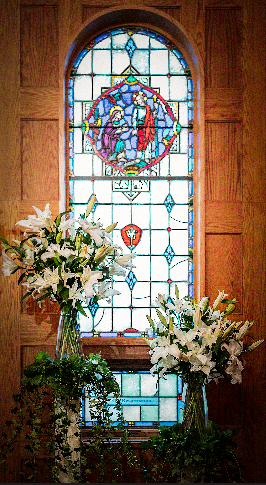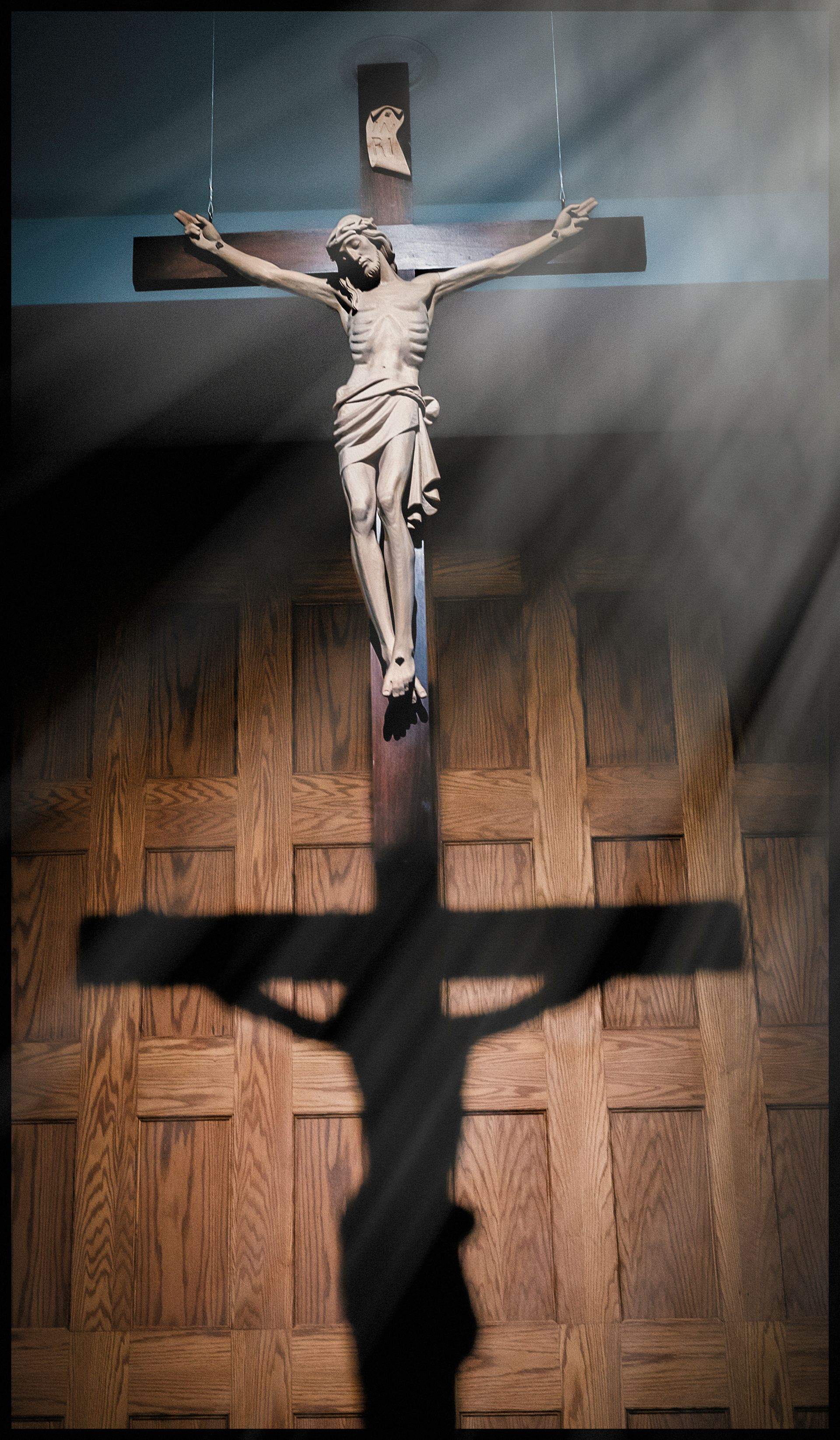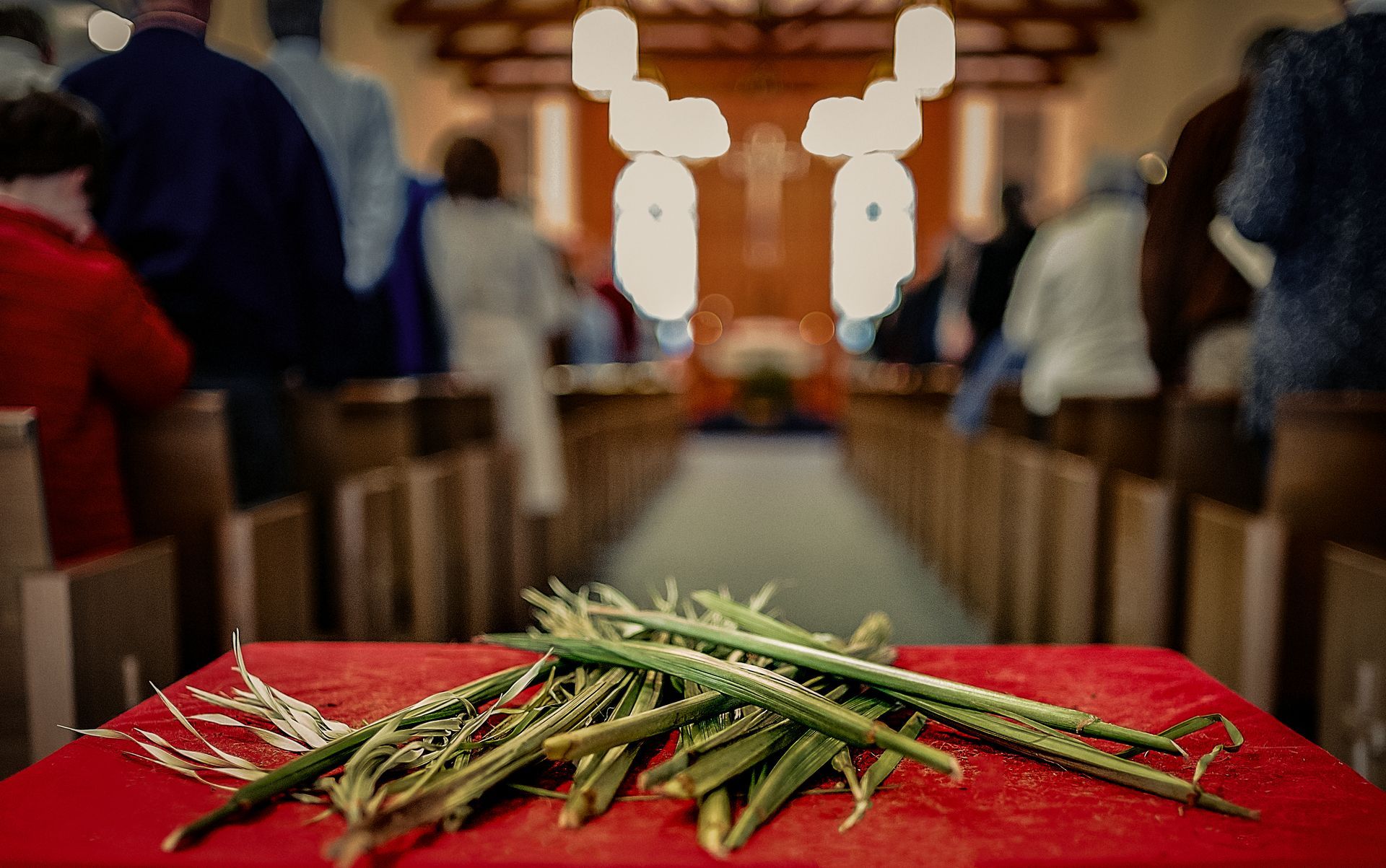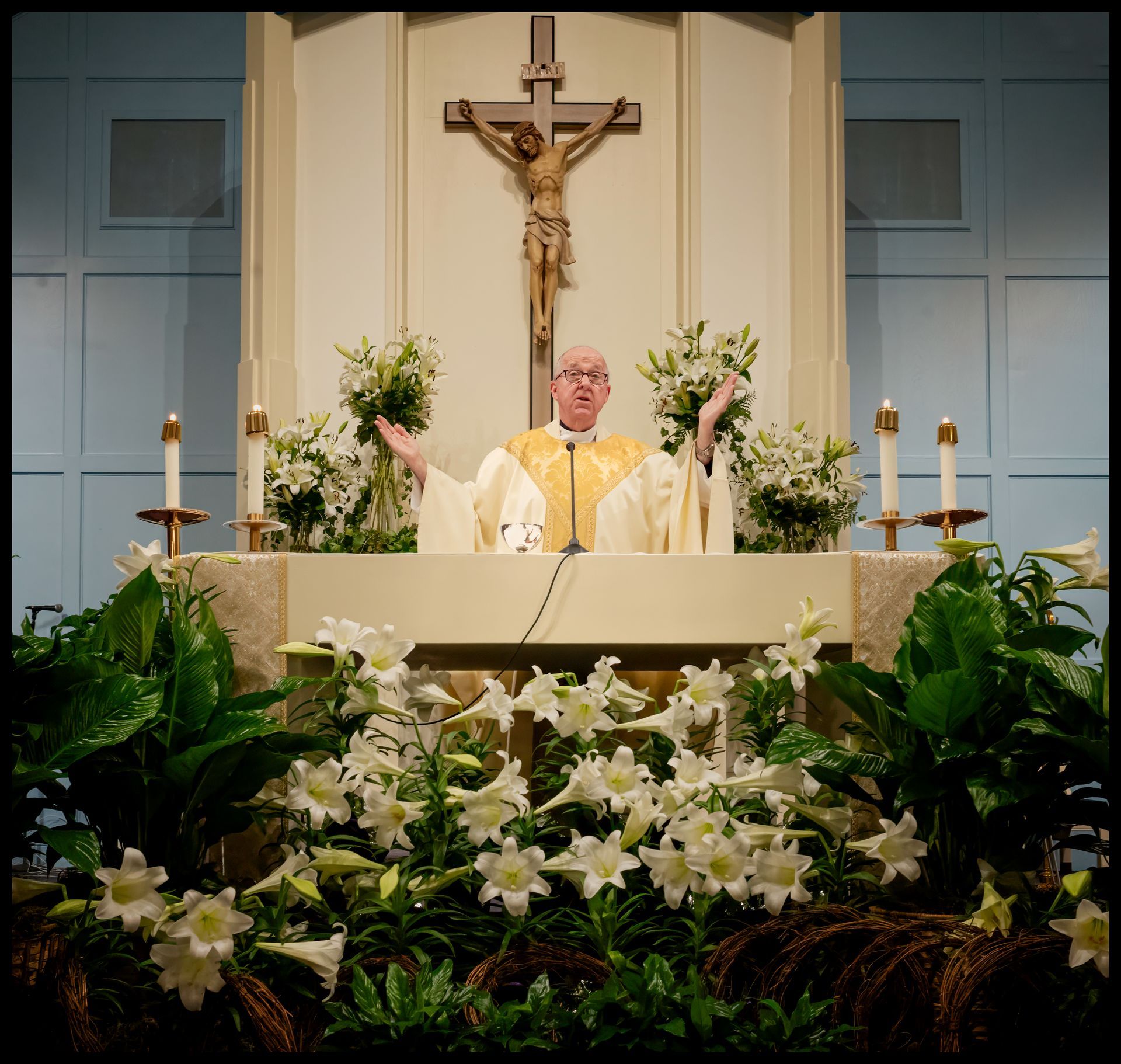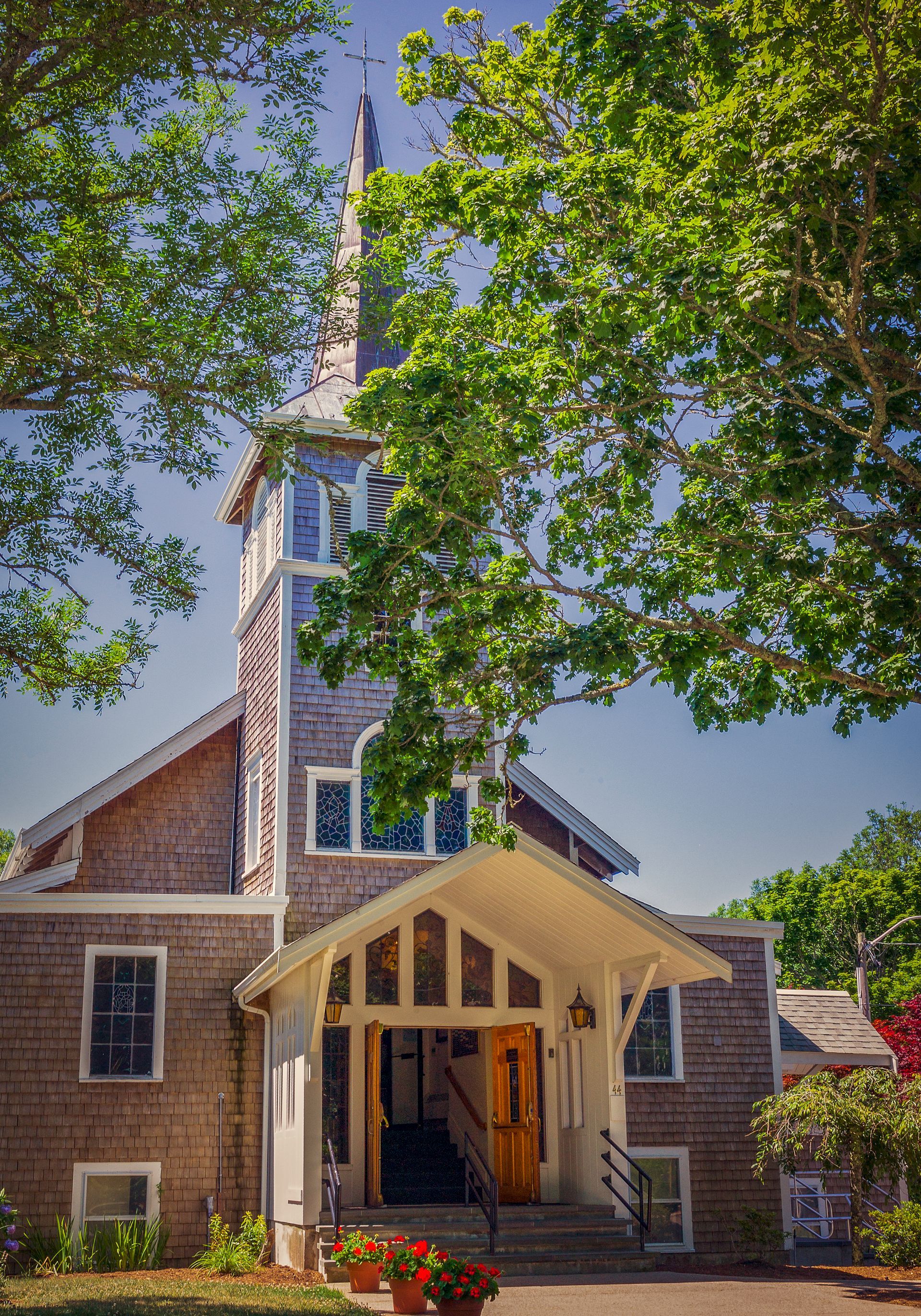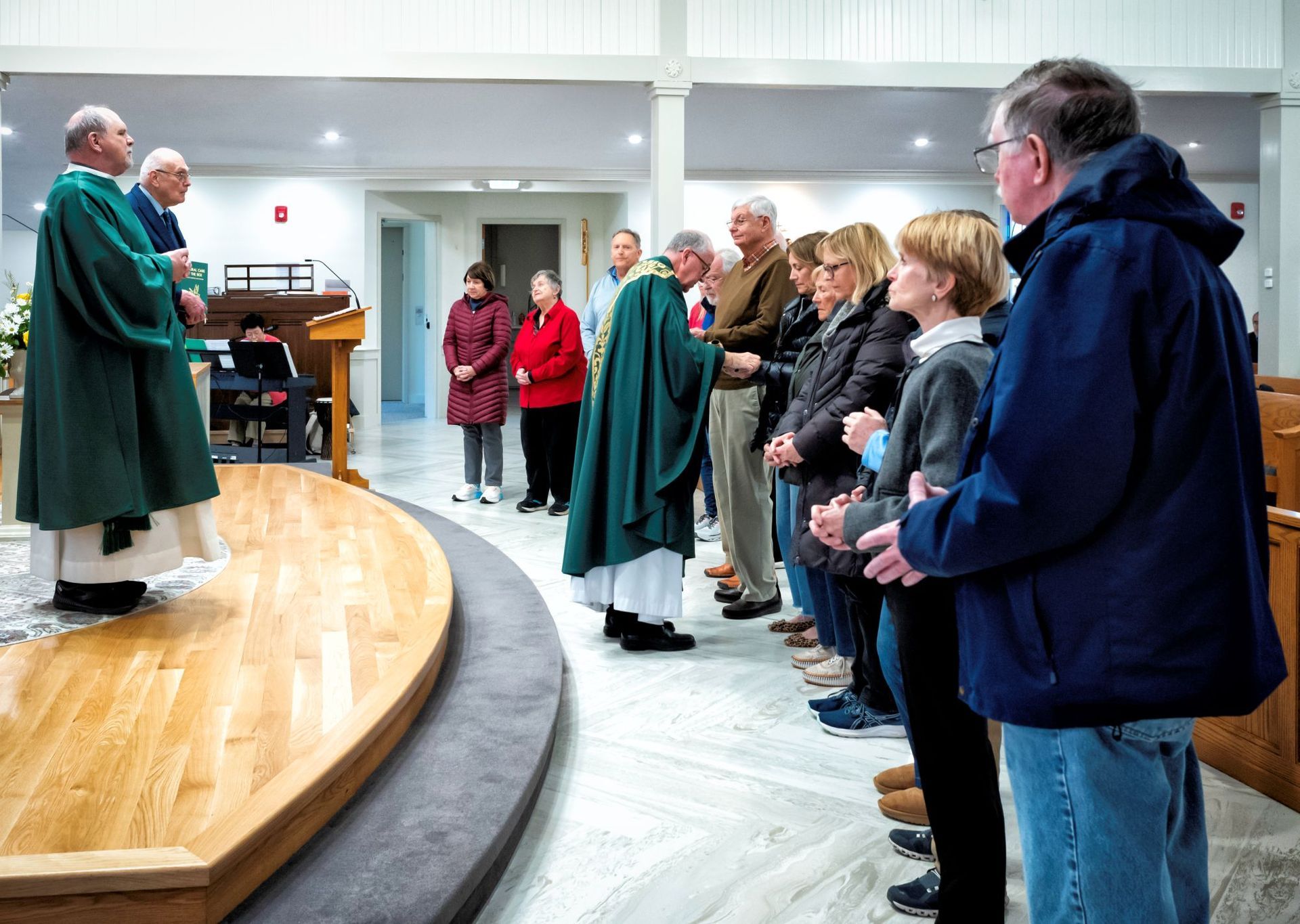3rd Sunday of Lent Homily
3rd Sunday of Lent- Fr. John Sullivan
I went off Cape on Wednesday and found what I’ve been looking for—spring! When I left
Chatham, it was foggy and drizzly and remained that way all along the Mid-Cape Highway. Suddenly, the sky became completely clear on 495 at the Bourne/Plymouth line. When I got to my brother’s house near Fall River, it was ten degrees warmer. He was doing yard work and had shed his jacket. Up against a south-facing foundation, daffodils were in bloom, buds on an elm, and some maples in the yard were beginning to swell. I spent a lovely afternoon and returned to the Cape, hoping to bring spring along. It got as far as Middleborough when I ran into the fog and clouds, and you know what the last few days have been like. We need staying power as we wait for spring on the Cape.
Spring is a season full of fits and starts. One day, it seems the nicer weather is on its way, and then we have three days of gloomy bleakness. These forty days of spiritual preparation for Easter can be the same way. The English-speaking Christian world calls this season Lent. A term meaning spring. Like spring, our Lenten conversion can be filled with fits and starts. We made big plans for a fruitful Lent on Ash Wednesday, but after a couple of weeks, we may have slipped back into our old patterns again. We need staying power to experience conversion this Lent.
To help build spiritual staying power, we have been preaching a series of Lenten homilies using the theme “In with the New.” Our purpose is to help parishioners develop the staying power to strengthen their relationships with God. The first week, Deacon Art preached about temptation and how, after resolving to live a good Lent, temptation can land in our laps like a stick of dynamite. We can’t panic but must move quickly to confront temptation. Last week, I spoke about God wanting to renew God’s covenant with us. This is the covenant God first made with us at our baptism and the one we will renew as we reaffirm our baptismal promises at Easter Masses. An ancient covenant was a pledge between two parties, but God’s covenant with his people is a one-way agreement. God lets responsibility for keeping the covenant fall all on God.
Lent is the time to improve our relationship with God. God believes humanity is capable of change and goodness and worth having a relationship with us. Our state of sin and selfishness need not be fatal to our souls. God wants to save us, but conversion needs staying power. If we want a worthwhile relationship with God, we need to be open to allowing ourselves to prune away the dead wood, train branches in the right direction, and allow the soil around us to be aerated and nutrients added so we can be fruitful disciples.
God wants to save us even more than we can desire salvation. Proof of that comes from the scriptures. Passages like the ones we heard today. The reading from Exodus teaches us that God initiates a relationship with all of us regardless of our openness to it. Moses was an unlikely candidate to be the man to lead the Israelites out of Egyptian slavery. While Moses was born into a family of Israelites, he was raised in the household of Pharaoh’s daughter. He only had a cursory understanding of his people’s relationship with God. Moses had such a poor understanding of God’s relationship with him he didn’t give his firstborn son circumcision as a mark of belonging to God’s Chosen People. His morals weren’t that good either. He had killed an Egyptian. That was why he was hanging out hiding and herding sheep in the Midian desert on the slopes of Mt Horeb.
God appears in the burning bush to a marginal Israelite going about his everyday business of herding sheep. Moses wasn’t seeking God; they didn’t have a relationship. It was God who sought out Moses. Moses didn’t appear to have many qualities of a good leader either. He wasn’t a persuasive speaker, and his management skills weren’t great. Yet, God appeared to him in the burning bush, chose to reveal God’s name to him, and commissioned Moses to win the Israelites their freedom from slavery.
Today’s gospel parable of the fig tree is another example of God’s desire to help us bear spiritual fruit this Lent. We can misinterpret the landowner as an image of God the Father and the gardener as Jesus. We imagine the landowner as an impatient Old Testament vengeful God and the gardener a compassionate, loving Jesus the Son. At least, that is how I was guilty of interpreting Jesus’ parable. Actually, it is God the Father who is the gardener. An indulgent gardener should be God the Father since Jesus tells the parable. God the Father wants to give us another opportunity to bear fruit.
Without understanding fig trees, we can underestimate the gardener's patience. The fig tree has been assigned a chosen place to grow. In a land with mostly thin, dry soil, it was given a choice place in a vineyard. The farmer would choose the most fertile ground to plant the grapevines. He would supplement the soil by bringing in dirt from the surrounding area to make even richer fertile ground.
Fig trees must grow for three years before they begin to bear fruit. The landowner has already been very patient with this tree. He claims to have been coming in search of fruit for three years, so that means the tree has been growing for six unproductive years.
Jesus tells us that the gardener, God, wants to give this unproductive tree yet another year to bear fruit and prove its worthiness. The gardener will take time away from other duties to give this unproductive plant special attention. The gardener will loosen the soil around the tree trunk, provide some extra water, and pile manure at the base, hoping to coax a crop from the tree.
Since God wants to save us, what must we do to help? We need to be open to grace, open our souls, and welcome God. The Sacraments, especially the Sacrament of Reconciliation, help us do that. I’ve told you that I don’t want to be a scold, but of all the parishes I’ve served, Holy Redeemer has the poorest practice of Confession. I’ve sat in the Reconciliation Room on a Saturday and had no one come. This Lent, I’ve decided to try to encourage the practice of Reconciliation by making myself more available to celebrate it. In addition to being in the Reconciliation Room at the back of the church on Saturdays from 3-3:45 p.m. I am in the Confessional on Tuesday afternoons from 3:30-4:30 p.m.
People are coming, although I can’t say in overwhelming numbers. Like the gardener, I’ll be patient in the hope that more people will come. Those who are coming seem to find it a very good experience. Several admit it has been years, even decades since they celebrated Reconciliation. Some say they almost feel giddy with joy after receiving absolution.
There is no wrong way to go to Confession. If you cannot remember the formula you learned before your First Communion, the priest will help you. You need to confess patterns of sin and not so much exact numbers of sins. It is always good to tell the priest what sins you find most burdensome. After your confession, the priest will ask you to recite an Act of Contrition. I’m often surprised by the number of penitents who don’t know the Act of Contrition by heart. It is one of my favorite prayers. If we say it every night as part of our Night Prayers, it helps us receive God’s forgiveness for the venial sins committed during the day. The priest will give you a penance, usually a few prayers to say to yourself after you leave the Reconciliation Room. This is meant as a gesture of thanksgiving for God’s mercy and not your punishment for your sins.
Receiving the Eucharist every Sunday is another way God wants to fill us with grace so we can have the staying power to be faithful disciples. The third commandment instructs us to worship God every Sunday. Every time we come to Mass, we are filled with the grace that Jesus’ death on the cross won for us. During Lent and throughout the year, several dozen parishioners attend daily Mass. Maybe you would like to join them?
Easter is a great time to share God’s loving care with people who don’t attend church. Some, like Moses, have only a vague understanding of faith because they weren’t brought up with it. Others are like that fig tree growing in the vineyard. They have been given great opportunities to develop a fruitful relationship with God, even a Catholic education, but aren’t producing fruit. They may need some special attention to become disciples.
Recently, I read that a survey of nonchurch-goers found over 60% of them would consider coming to church on Easter if asked by a family member, friend, or acquaintance. We will pass out invitations after Mass to help you have an entrée asking such people to come to Easter Mass. You will remember we did this at Christmas. Take three or four.
We also want to be a very friendly parish at Easter. To do that, we need parking attendants welcoming people and directing them to spaces in the parking lot. We need greeters opening doors and smiling at our visitors and parishioners who might not come that often. We need ushers to help unusually large crowds find seats so everyone can be comfortable. Beginning next week, we will have sign-up sheets available for volunteers. If you helped at Christmas, please do so again at Easter.
With some staying power, spring will come even on Cape Cod. Its warmth, freshness, and new life will renew us. Let Lent and its spiritual disciplines allow God a deeper relationship of growth and love with you.

